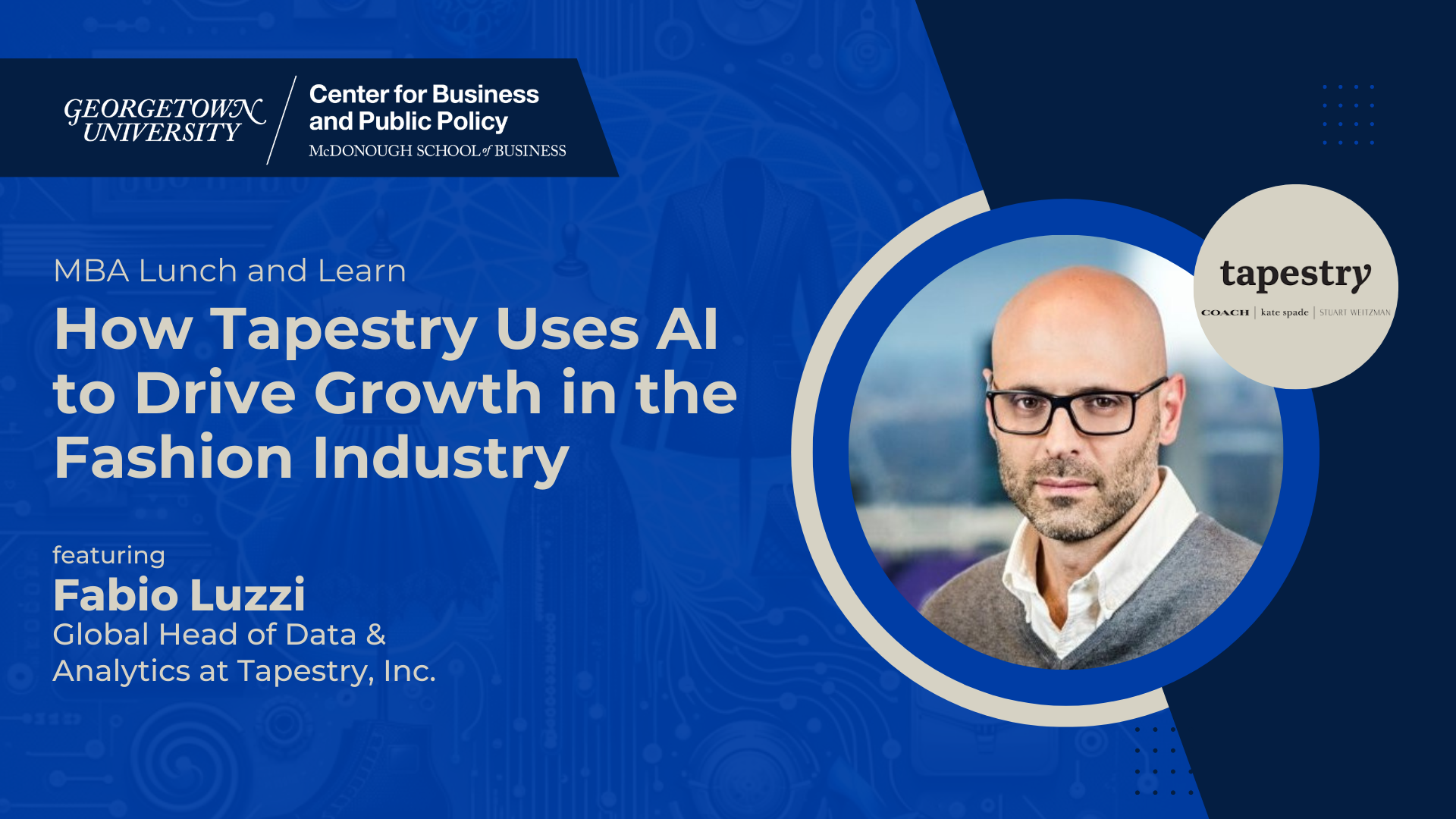Business Transformations with Data & AI: The Center for Business and Public Policy Hosts Fabio Luzzi, Head of Data and Analytics at Tapestry

Posted in News
By Bella DeLeo (C’26)
On March 26, the Center for Business and Public Policy (CBPP) at Georgetown University’s McDonough School of Business welcomed Fabio Luzzi, head of data and analytics at Tapestry, for the next conversation in their MBA Lunch & Learn series.
Luzzi, who brings more than seven years of experience leading data-driven transformations, shared valuable insights into how non-tech companies like Tapestry are leveraging data, AI, and digitalization to drive profitable growth and adapt to an increasingly tech-centered world. With a background in statistics, computer science, and data analytics, Luzzi discussed the opportunities and challenges that come with incorporating AI and machine learning into business processes.
As the parent company of Coach, Kate Spade, and Stuart Weitzman, Tapestry has successfully integrated a variety of data-driven strategies and models to navigate the complexity of global supply chain management and dynamic consumer trends. Luzzi outlined a three-part framework at the core of AI-driven business transformation, which involves:
- organizing data into a scalable and unified system,
- digitalizing internal processes, and
- applying AI tools in a strategic way.
He highlighted the significance of Tapestry’s patented “data fabric,” a system designed to scale and share data seamlessly across key areas such as finance, merchandising, planning, and other critical teams.
In a candid Q&A, this session explored how AI is enhancing demand forecasting, optimizing product assortments, improving pricing strategies, and strengthening marketing efforts. Luzzi shared that AI-generated forecasts for unit sales have already proven more accurate than human predictions, improving inventory management and cash flow. While AI is not yet used for product design, it plays a critical role in assortment planning, customer profiling, store clustering, and price sensitivity analyses.
He also emphasized the importance of leadership in a successful digital transformation, noting that technology alone cannot drive change. Rather, leadership, trust, and organizational adoption are key to digital transformation.
“AI won’t replace humans, but it will replace humans who don’t use AI,” Luzzi noted.
Attendees from the McDonough School of Business left with practical takeaways on how non-tech companies can embrace AI to improve operations, remain competitive, and adapt to the future of business.Register for one of our April events!
